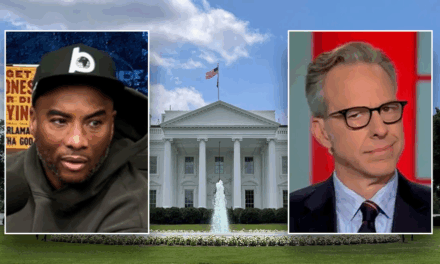A Missouri lawmaker has raised alarms regarding the ambitious and financially demanding proposals introduced by Mamdani, arguing that such socialist plans have proven to be detrimental and ineffective in the past within the state. The official, outspoken about the potential repercussions of these strategies, emphasized the need for a cautious approach as the state evaluates future costs and their applicability in the current economic landscape.
The remarks came in response to a series of policy suggestions put forth by Mamdani, which aim to implement broad governmental interventions in various sectors such as healthcare, education, and housing. These initiatives seek to provide increased access and affordability but have also raised significant concerns about their financial viability and long-term sustainability.
Mamdani’s plans involve extensive funding and extensive legislative support, which many critics argue could lead Missouri down a path of economic instability. Citing previous attempts at similar reforms that failed to yield the anticipated results, lawmakers are increasingly skeptical of endorsing further plans that could exacerbate existing financial burdens on taxpayers.
One of the primary points of contention revolves around the costs associated with Mamdani’s initiatives. Lawmakers worry that the implementation of sweeping reforms could result in hefty state expenditures that might require substantial tax increases. The last few years saw austerity measures implemented across various areas of the state budget, and many are reluctant to revert to those practices as they would likely lead to further financial hardships for residents.
In the past, Missouri attempted to roll out similar Medicare-for-All-type programs touted as a solution to the state’s healthcare challenges. However, these plans faced overwhelming pushback from both the public and fiscal analysts, resulting in the abandonment of many proposals after their feasibility was called into question. According to critics, the programs not only failed to deliver on promised benefits but also created uncertainty and distrust within the healthcare system.
Education funding is another significant component of Mamdani’s plans, aimed at leveling the playing field by ensuring access to quality education for all students, regardless of their socioeconomic background. While the intention behind this initiative is undeniably commendable, the prior experience with education funding reform in Missouri suggests that significant resources were allocated without achieving meaningful changes in student outcomes.
Opponents highlight that the state has made repeated attempts to reform education funding formulas over the years, often facing legislative gridlock and public dissatisfaction. Since previous proposals faltered, many lawmakers question whether repeating the same patterns under a different guise would yield different results. The sentiment is that long-term educational improvement necessitates a more nuanced conversation regarding resources, accountability, and innovative practices rather than blanket reform approaches.
Housing policies, another key element of Mamdani’s agenda, include ambitious goals aimed at increasing affordable housing stock and reducing homelessness. While the aim of tackling housing crises is critical, past experiences in Missouri point to the state’s struggle to effectively manage housing financing and regulatory practices. Increased assistance programs were often met with adverse market reactions, leading to unforeseen consequences in home values and the housing market at large.
To the state’s policymakers, there’s a growing concern that housing proposals would require significant legislative overhaul, potentially burdening local governments with additional regulations that could stymie housing development rather than encourage it. In areas where taxpayer dollars are already stretched thin, the idea of more involvement from the state without clear plans and evidence of success raises red flags among legislators committed to prudent fiscal governance.
In recent weeks, public discussions regarding Mamdani’s proposals have ignited heated debates not only in the legislature but also among everyday citizens concerned about the implications of expansive government spending. Advocacy groups supporting the proposals argue they are necessary to address systemic inequalities; however, opponents maintain that the economic fallout from past initiatives should warn the state against repeating the same mistakes.
Fiscal Responsibility and Public Sentiment
The pushback against Mamdani’s proposals comes amidst a larger nationwide conversation regarding fiscal responsibility and the role of government in addressing social issues. Much of the debate revolves around how expansive government intervention is ideal for fostering equitable access to essential services while considering the financial sustainability of such approaches.
Many citizens express frustration with the financial repercussions that often follow grandiose programs. Discussions around tax increases to fund charitable initiatives have led to pushback from various segments of the population, especially as economic instability looms on the horizon. The dichotomy between idealism and fiscal pragmatism continues to create tension in legislative chambers, urging discussions to seek balance in addressing the needs of the citizens without overextending state resources.
Moreover, as Missouri finds itself navigating the growing challenges posed by rising costs of living and inflation, lawmaker apprehension mounts regarding untested approaches to social welfare that may not be able to withstand economic pressures. Policymakers increasingly embrace a model focused on pragmatic solutions that work toward a cost-benefit analysis rather than adopting an ideological perspective alone.
Moving Forward: A Cautionary Approach
As political discussions unfold, there is a call for collaboration between lawmakers. The idea of working within the framework of historical context and learnings from past experiences offers a more constructive path forward. By prioritizing initiatives that build upon successful strategies while considering existing fiscal constraints, legislators may find common ground and establish a more constructive dialogue around social policy reform.
The stark contrast between enthusiasm for expansive social policies and the lessons of past failures continues to bump against one another, forcing advocates and lawmakers to navigate a complex landscape of public opinion, fiscal reality, and social responsibility. Mamdani’s proposals may indeed reflect articulated desires for an equitable society, but caution rings loud, echoing the outcomes of ambitious yet problematic programs that once plagued Missouri’s fiscal landscape.
Moving into the future, Missouri lawmakers will need to examine existing policy frameworks, consider the impact of new proposals not just theoretically, but practically. An emphasis on evaluating outcomes, conducting thorough analyses, and understanding taxpayer sentiments may yield strategies that promote progress without the burden of historical missteps weighing heavily on the state’s finances.
In conclusion, as legislators engage in discussions around Mamdani’s expensive plans, they must tread carefully and consider the implications of past policies. Without rigorous scrutiny and accountability, the push for such initiatives could lead the state down a rocky path, reminiscent of preceding challenges. With careful consideration, Missouri has the potential to harness progressive ideas while maintaining a steadfast commitment to fiscal responsibility.































